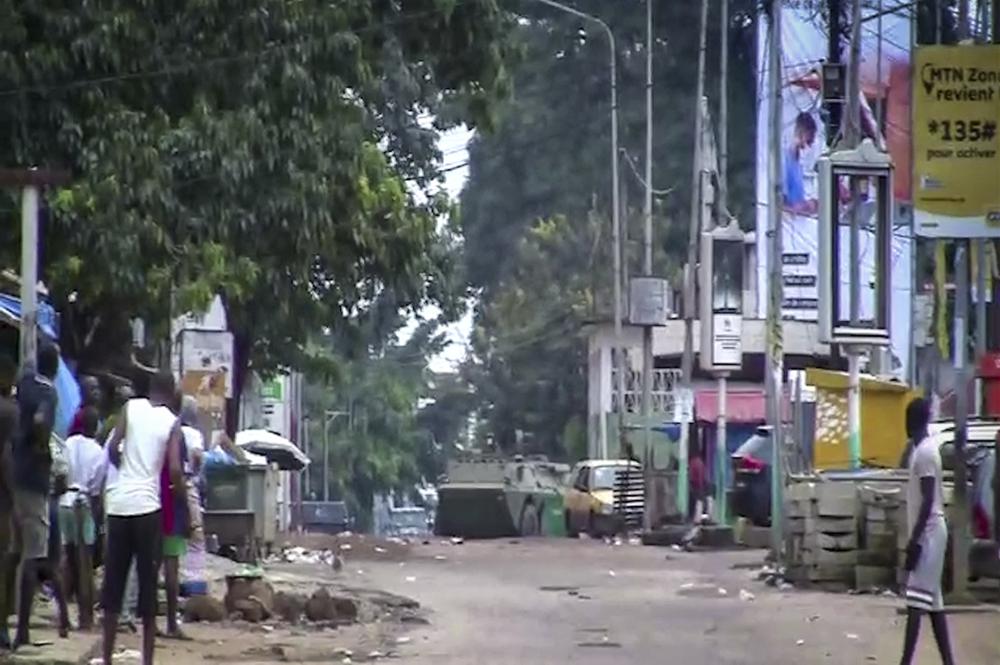T20 World Cup: Assad Vala to lead Papua New Guinea
The 34-year-old left-handed batsman has played 31 ODIs and scored 805 runs.
The junta later announced plans to replace Guinea’s governors with regional commanders at an event Monday and warned: “Any refusal to appear will be considered rebellion” against the country’s new military leaders.

In this image made from video, residents watch as an armored personnel carrier is seen on the streets near the presidential palace in the capital Conakry, Guinea Sunday, Sept. 5, 2021.
Mutinous soldiers in the West African nation of Guinea detained President Alpha Conde on Sunday after hours of heavy gunfire rang out near the presidential palace in the capital, then announced on state television that the government had been dissolved in an apparent coup d’etat.
The country’s borders were closed and its constitution was declared invalid in the announcement read aloud on state television by army Col. Mamadi Doumbouya, who told Guineans: “The duty of a soldier is to save the country.”
Advertisement
“We will no longer entrust politics to one man. We will entrust it to the people,” said Doumbouya, draped in a Guinean flag with about a half dozen other soldiers flanked at his side.
Advertisement
It was not immediately known, though, how much support Doumbouya had within the military or whether other soldiers loyal to the president of more than a decade might attempt to wrest back control.
The junta later announced plans to replace Guinea’s governors with regional commanders at an event Monday and warned: “Any refusal to appear will be considered rebellion” against the country’s new military leaders.
The West African regional bloc known as ECOWAS quickly condemned the developments, threatening sanctions if Conde was not immediately released. U.N. Secretary-General Antonio Guterres tweeted that he strongly condemned “any takeover of the government by force of the gun.”
The U.S. State Department warned against violence and urged authorities in Guinea to avoid “extra-constitutional” actions that “will only erode Guinea’s prospects for peace, stability, and prosperity.” Spokesman Ned Price added in a statement that the junta’s “actions could limit the ability of the United States and Guinea’s other international partners to support the country.”
Conde’s whereabouts had been unknown for hours after the intense fighting Sunday in downtown Conakry until a video emerged showing the 83-year-old leader tired and disheveled in military custody.
The junta later released a statement saying Conde was in contact with his doctors. But they gave no timeline for releasing him other than to do say: “Everything will be fine. When the time comes, we will issue a statement.”
Conde, in power for more than a decade, had seen his popularity plummet since he sought a third term last year, saying that term limits did not apply to him. Sunday’s dramatic developments underscored how dissent had mounted within the military as well.
Observers, though say the tensions between Guinea’s president and the army colonel stemmed from a recent proposal to cut some military salaries.
The developments that followed closely mirrored other military coup d’etats in West Africa: The army colonel and his colleagues seized control of the airwaves, professing their commitment to democratic values and announcing their name: The National Committee for Rally and Development.
Advertisement